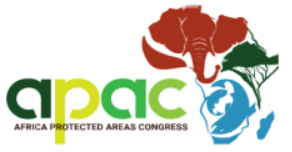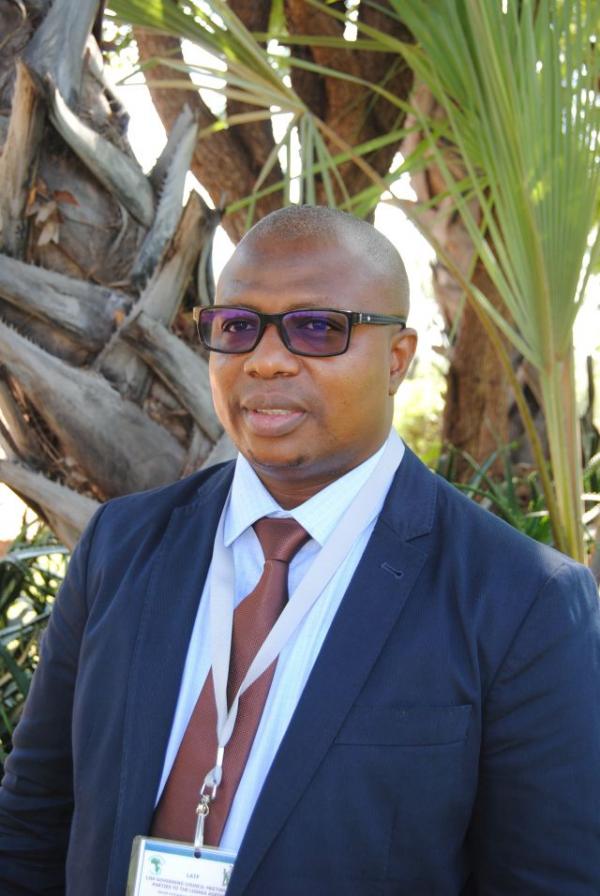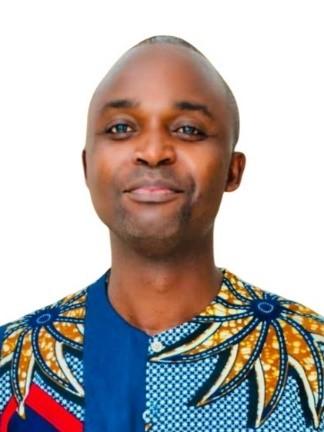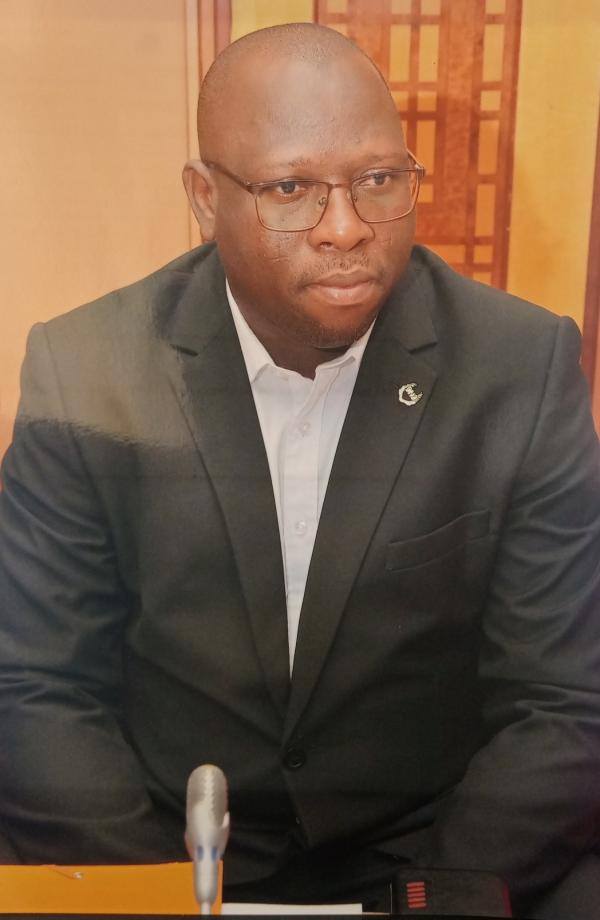Context of the session
To ensure an effective monitoring of natural resource and ecological footprints of human activities, the IUCN, in collaboration with VITO, has developed a semi-automatised platform for natural capital accounting. Its aim is to provide critical elements for informed decision making with regard to biodiversity and economic policies. The platform, which builds on the SEEA EA-compliant Ecosystem Natural Capital Accounting (ENCA) framework, has been tested and refined with local data from the Moyen-Bafing National Park.
The Moyen-Bafing National Park (MBNP) was created in 2021 following a detailed setup phase in which the Wild Chimpanzee Foundation (WCF) collaborated with the Office Guinéen des Parcs nationaux et Réserves de Faune (OGPRF). The MBNP is home to the largest continuous population of the endangered West African Chimpanzees. The challenge of the MBNP is to preserve the coexistence of the chimpanzee population with the villages established within its limit. To support this coexistence, a project of ecosystem regeneration has been set-up. This project is monitored through a fine-scaled monitoring program, which collects a substantial amount of local data that is used to refine the ENCA model.
During this session different methods and approaches, from regional to local level, used to evaluate conservation and restoration projects, as well as their complementarities have been presented. In the second part of the session, the discussion focussed on the way these methods can be used to improve the effectiveness of the management of natural capital, and more specifically whether natural capital accounting can facilitate protected areas management in West Africa
Agenda of the Session
Natural Capital Accounting to facilitate protected area management in West Africa: Importance of local data
Friday July 22nd at 14-15.30 (UTC+2) – APAC Congress – room AD3, Kigali Convention Centre
- 14.00 : 'Introduction' by Souleymane Tiemtore (IUCN)
- 14.15 : 'Natural capital accounts to support conservation policies in Gabon, using the ENCA tool' by Antonin Vergez (IUCN). The presentation can be downloaded here.
- 14.35 : 'Context of intervention and system for collecting biological and socio-economic data in the Moyen-Bafing National Parc' by Pacifique Kizila (WCF). The presentation can be downloaded here.
- 14.55 : 'A multi-scale approach for ecosystem natural capital accounting of protected areas in West Africa: from global to local data' by Bruno Smets (VITO). The presentation can be downloaded here.
- 15.15 : Discussion/questions
- 15.30 : Closure
Speakers' Biography
Bruno Smets
Lead Natural Capital Accounting, VITO
After graduating as an MSc in Electronics Engineering, Bruno worked with teams across the world in the field of multi-media processing in the digital as well as the mobile domain with focus on sound and image processing. He joined VITO Remote Sensing in 2009 and has been leading several consortia implementing Copernicus Land services.
Today, Bruno leads the Natural Capital Account team. His focus is on bringing ecosystem accounting to the operational level, by e.g. in Europe by supporting Eurostat in implementing the legislation via guidelines and tools; and in Africa by applying ENCA to complement management of protected areas. Furthermore, he focusses on integrating Earth Observation in ecosystem accounting, biodiversity and carbon reporting. More information on the work of VITO on Natural Capital Accounting can be found at https://remotesensing.vito.be/case/natural-capital-accounting.
bruno.smets [at] vito.be
Arsene Sanon
Regional Coordinator PAPBio Programme, IUCN
Arsene Sanon is an agricultural engineer. He holds a Master in environmental management, a Master in Soil Sciences and a PhD in environmental management with a focus on ecosystem and habitat restoration. He has been working in research for development for around 5 years before joining IUCN in 2011 where he is currently the Regional Coordinator of a project aiming at improving the management and governance effectiveness of protected and conserved areas in West Africa. In this effort, he is contributing to the dissemination of Natural Capital Accounting in the region as a robust tool to support decision-and policy-making in connection with biodiversity conservation policies and strategies (Arsene SANON, PhD | LinkedIn).
arsene.sanon [at] iucn.org
Pacifique Wimana Kizila
Country Director Guinea, WCF
After obtaining his Diploma of Advanced Studies in Management and Conservation of Biodiversity, Pacifique KIZILA worked for 15 years in the Central and West Africa National Parks. Member of the “Green List” National Expert Group; he participated as a Protected Areas Advisor in the process of removing Comoé National Park from the list of World Heritage Sites in Danger. His main expertise lies in creating Protected Areas with strong local communities’ involvement. Pacifique KIZILA has been a key player in the development of planning tools for the land cover and land use in the village territories, fire management, conservation targets monitoring in the park. He has a long experience in formulating key indicators to measure the Protected Areas effectiveness, with a link to the integration of environmental aspects into the municipality’s local development plans. Recently, his activities have focused on the cross-border management of forest landscapes, the establishment of a network of protected areas and their connectivity. More information on the work of WCF can be found at http://www.wildchimps.org/index.html.
kizila [at] wildchimps.org
Antonin Vergez
Senior Expert for Natural Resources Economics, IUCN
Antonin Vergez is an agronomist and engineer, he holds a master's degree in natural resource economics, a Master in Public administration and a PhD in social sciences. He has been working for 12 years in the Ministry in charge of the environment in France. He is now a Senior expert for natural resource economics at IUCN and contributes to several projects on biodiversity mainstreaming, reforms of harmful subsidies, natural capital accounting and deforestation footprints of Nations. More information on the mainstreaming biodiversity BIODEV2030 project in which he is involved can be found at https://www.biodev2030.org.
antonin.vergez [at] iucn.org
Souleymane Tiemtore
Project officer Environmental Policy Information Systems in West Africa, IUCN-PACO
After obtaining his master's degree in computer engineering and his master's degree in geographic information systems (GIS), he worked for 11 years at the Geographic Institute of Burkina Faso as head of information systems and GIS databases. He also worked for the Luxembourg cooperation as a GIS expert and database specialist where he set up an online geographic information system used to monitor the state of implementation of all telecommunication infrastructures in Burkina Faso. He supported the implementation of a rural geographic information system. Today he is in charge of environmental policy information systems in West Africa at IUCN-PACO. In this position, he is in charge of the implementation of IT tools for the management of protected areas and biodiversity conservation. In the Regional Governance of Protected Areas project, he is in charge of the deployment of the IMET tool in West Africa, as well as the follow-up of the implementation of activities related to the Ecosystem Natural Capital Accounting of (ENCA).
souleymane.tiemtore [at] iucn.org
For any queries, please contact catherine.vandenhoof [at] vito.be (Catherine Van den Hoof).





